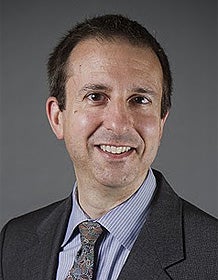Strategies lawyers often use to prepare for a civil trial can drive up costs to clients and make those lawsuits more complicated and time-consuming than necessary, according to a Case Western Reserve University law professor.
In a new research paper published in the Fordham Law Review, Case Western Reserve Professor Andrew Pollis suggests changing the judicial system to eliminate what he characterizes as a “pretrial industry”—litigation abuses that exist to maximize billable hours.
 Andrew Pollis
“Most of the action takes place in the pretrial phase, which consists mainly of filing motions and discovery,” Pollis said. (Discovery is the gathering of evidence, usually by interrogating witnesses or experts who might testify if a case goes to trial.)
Lawyers in civil cases sometimes try to drive up costs of opposing counsel as a settlement strategy, Pollis said. In his published article, “Busting Up the Pretrial Industry,” he suggests reforms that could “upend the legal system as we know it” if widely accepted and applied, he said.
To address pretrial abuses that can drive up legal fees and complicate the process, Pollis suggests:
Andrew Pollis
“Most of the action takes place in the pretrial phase, which consists mainly of filing motions and discovery,” Pollis said. (Discovery is the gathering of evidence, usually by interrogating witnesses or experts who might testify if a case goes to trial.)
Lawyers in civil cases sometimes try to drive up costs of opposing counsel as a settlement strategy, Pollis said. In his published article, “Busting Up the Pretrial Industry,” he suggests reforms that could “upend the legal system as we know it” if widely accepted and applied, he said.
To address pretrial abuses that can drive up legal fees and complicate the process, Pollis suggests:
 Andrew Pollis
“Most of the action takes place in the pretrial phase, which consists mainly of filing motions and discovery,” Pollis said. (Discovery is the gathering of evidence, usually by interrogating witnesses or experts who might testify if a case goes to trial.)
Lawyers in civil cases sometimes try to drive up costs of opposing counsel as a settlement strategy, Pollis said. In his published article, “Busting Up the Pretrial Industry,” he suggests reforms that could “upend the legal system as we know it” if widely accepted and applied, he said.
To address pretrial abuses that can drive up legal fees and complicate the process, Pollis suggests:
Andrew Pollis
“Most of the action takes place in the pretrial phase, which consists mainly of filing motions and discovery,” Pollis said. (Discovery is the gathering of evidence, usually by interrogating witnesses or experts who might testify if a case goes to trial.)
Lawyers in civil cases sometimes try to drive up costs of opposing counsel as a settlement strategy, Pollis said. In his published article, “Busting Up the Pretrial Industry,” he suggests reforms that could “upend the legal system as we know it” if widely accepted and applied, he said.
To address pretrial abuses that can drive up legal fees and complicate the process, Pollis suggests:
- Appointing “special masters” to resolve discovery disputes and requiring the party losing the dispute to pay the special masters’ fees, thus discouraging abuses;
- Using summary jury trials, where lawyers summarize their cases to juries who issue nonbinding verdicts but whose verdicts guide the parties to settlement. Parties could then choose to reject the results and proceed to discovery and a full-blown trial. But unless the result is better, they would be liable for their adversary’s attorney fees.





